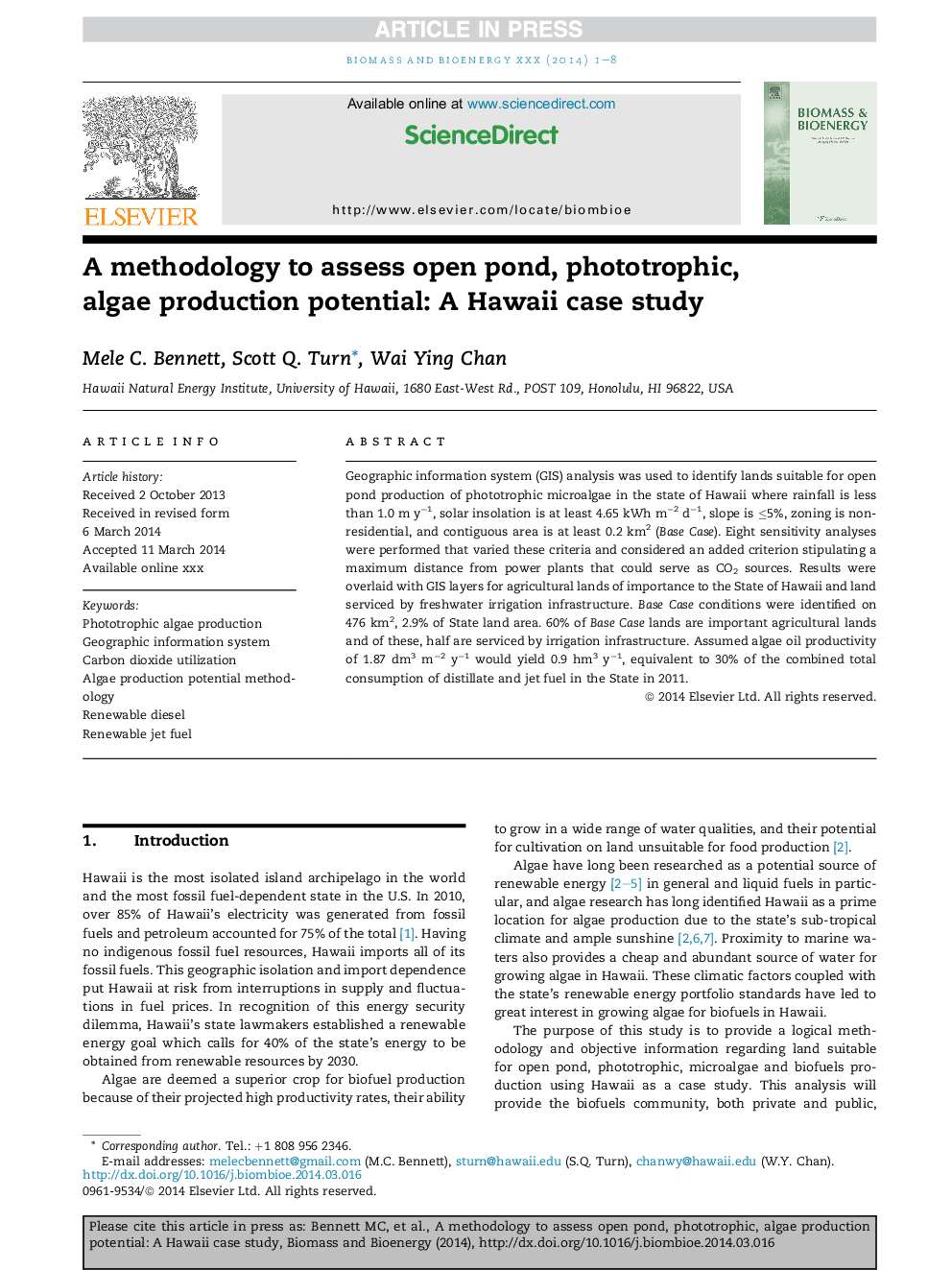| Article ID | Journal | Published Year | Pages | File Type |
|---|---|---|---|---|
| 7064701 | Biomass and Bioenergy | 2014 | 8 Pages |
Abstract
Geographic information system (GIS) analysis was used to identify lands suitable for open pond production of phototrophic microalgae in the state of Hawaii where rainfall is less than 1.0 m yâ1, solar insolation is at least 4.65 kWh mâ2 dâ1, slope is â¤5%, zoning is non-residential, and contiguous area is at least 0.2 km2 (Base Case). Eight sensitivity analyses were performed that varied these criteria and considered an added criterion stipulating a maximum distance from power plants that could serve as CO2 sources. Results were overlaid with GIS layers for agricultural lands of importance to the State of Hawaii and land serviced by freshwater irrigation infrastructure. Base Case conditions were identified on 476 km2, 2.9% of State land area. 60% of Base Case lands are important agricultural lands and of these, half are serviced by irrigation infrastructure. Assumed algae oil productivity of 1.87 dm3 mâ2 yâ1 would yield 0.9 hm3 yâ1, equivalent to 30% of the combined total consumption of distillate and jet fuel in the State in 2011.
Related Topics
Physical Sciences and Engineering
Chemical Engineering
Process Chemistry and Technology
Authors
Mele C. Bennett, Scott Q. Turn, Wai Ying Chan,
